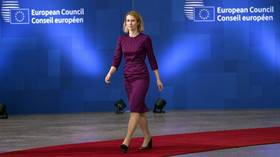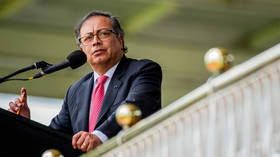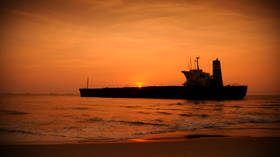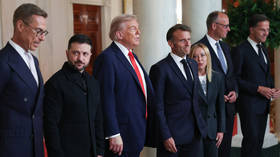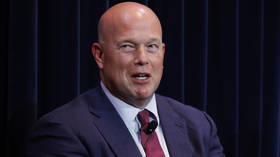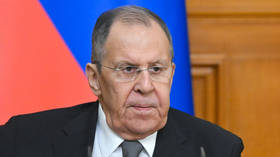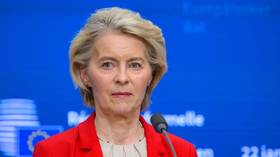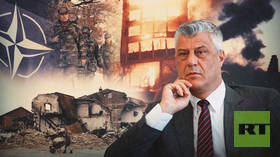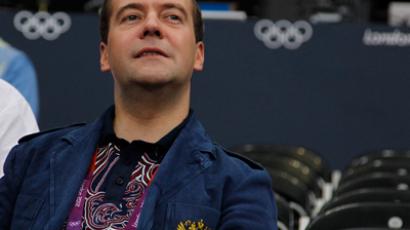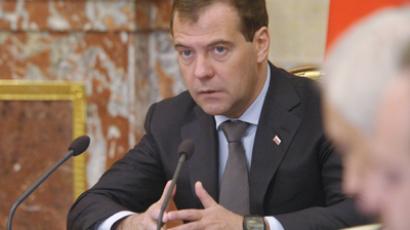Medvedev: Russia-US ‘reset’ done, time to develop relations
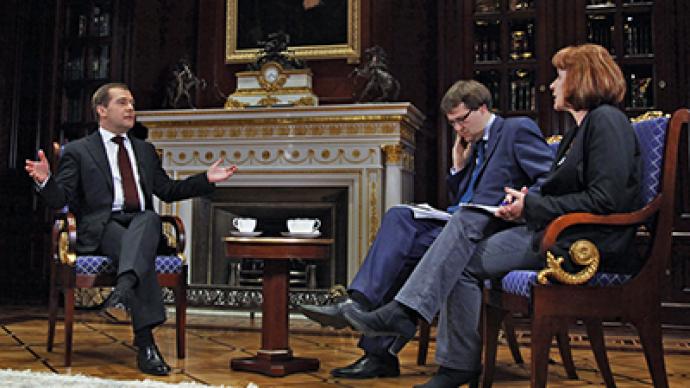
Moscow and Washington have already rebooted everything they could and now need to focus on the development of the relationship, Russian Prime Minister Dmitry Medvedev says in an interview with the Finnish media.
Below is the full text of the interview the head of the Russian government gave ahead of his visit to Finland.Q:Mr Medvedev, to start with could you outline the nature of the relationship between Finland and Russia, and tell us what are the most important topics you intend to discuss in Finland?A: Relations between us are good. Sometimes it seems to me that we share the same view on very many positions – both in bilateral relations and in international relations. Whatever the case, during the time when I was more actively involved in foreign policy than I am now, I had many opportunities to discuss our relationship with my Finnish colleagues.There are probably some points where our views diverge. I recently attended the summit in Laos, and I learned that there is one big difference between myself and Prime Minister Katainen. I usually use Apple products and he took a Nokia phone out of his pocket, which caught my attention. I said that I admired the way technology has developed in Finland in recent years, how telecommunications and modern communication technology projects have developed. This is a great example, given how 20 or so years ago no one in Finland would have guessed how this industry would develop. And this is just one potential area for cooperation. We have pretty good relations in this area within the Skolkovo project. So overall things are looking good, and I am looking forward to my trip, looking forward to our talks and attending the Forestry Forum with Prime Minister Katainen, and my meeting and talks with President Niinistö. Q:Mr Medvedev, my first question is concerned with custody of Russian children in Finland. You probably know about recent unpleasant events in Finland. Unfortunately, the information that was published about it in Russia is false and does not reflect reality, for example, about the amount of custody time… Finland tried to correct that information, but with very few results. Of course, this is a very serious question. A: The media enjoy the freedom of speech. I don’t know who wrote what, but the efforts to correct the information failed. This is indeed a serious question.Q:Of course, it’s a serious question. There is concern in Finland, the fear that Finland’s reputation in Russia will be affected. As a result, there will be fewer Russian tourists in Finland, which would be an unwelcome consequence. Can you say who would benefit from this and how badly can this situation impact Finnish-Russian relations? How do you think these issues should be addressed? Do you think there is a need for a joint commission on the children’s welfare?A: I agree this is a very difficult issue in our relations and one that arose rather unexpectedly. I can tell you that I have discussed it several times with my former colleague Ms Tarja Halonen (former President of Finland) and other colleagues. You have asked who will stand to gain from this. I don’t think anyone can benefit from this. This cannot benefit interstate relations, or the overall spirit of cooperation, or, as you have said, the tourists who are planning to travel to Finland or to Russia. But the worst part is that this will not benefit the children who these decisions concern or who are affected by the distorted information published in newspapers and broadcast by radio and television. It would be best if family issues were resolved in strict compliance with the family legislation. We have such legislation in Russia and you have it in Finland as well. If the issue concerns Finnish families and Finnish laws on marriage and family, it should be dealt with in accordance with the Finnish legislation, no one questions that. But the trouble is that due to a variety of reasons, both subjective and objective, a number of such cases have great resonance. It is believed – at least, some experts on marriage and family and journalists think so – that some of the people involved in these cases (mostly present or former citizens of Russia) receive biased treatment. I am not a judge or an expert on this type of conflict, although at the dawn of my teaching career I studied the marriage and family legislation, so I know a little about it. Unfortunately, all this is developing into a trend, which is not good at all. I know that the Finnish laws on marriage, family and custody are very strict. However, we were taught that such decisions should above all take into account the children’s interests. And when a child is made hostage to a family conflict, and especially if this conflict is taken up by media outlets, it is the child who suffers first of all. And this is truly lamentable. Of course, we are not trying to encroach on Finland’s sovereignty in the field of marriage and family; these are your laws. But since such conflicts arise from time to time, the best solution apart from signing a relevant convention (which is still a long way off, and I see that my colleagues are not eager to sign it) would be to create a commission that would submit proposals for improving rules and for resolving practical problems. I believe that this would be a good solution. We set up such a commission with France in 2011, and it has been efficient. I believe that it helps to resolve some questions. We could apply the same solution to the recent collisions over marriage disputes in Finland. On the whole, I believe, as I have said, that when considering a decision, the court in any country and any custody agency should above all take into consideration the interests of children, and not how the parents will look in this or that situation. Mind you, I don’t want to interfere in any particular case, as this would be wrong on my part.Q:Thank you. Now the investment climate. One of the main goals of the Government is to break the economy’s dependence on commodities. This year Russia joined the WTO, which was a very important step. Russia is a very important market for Finland, and many Finnish companies are interested in manufacturing consumer goods or food products in Russia, but they often encounter problems here. Opening a plant in Russia requires too much effort, especially to organize the required papers. What else are you planning to do to improve the investment climate in Russia, and which Finnish companies would you like to attract?A: I just said that on the whole, Russia and Finland have established solid trade, economic and investment ties, which is clearly evidenced by the figures: bilateral trade reached about 20 billion last year. I hope the level will be just as high this year. Anyway it is higher than what we have with many European countries. So I think that our relations are good. But there is always room for improvement. Since Russia has joined the WTO, we believe we are beginning to be guided by the common rules. Until recently, we had a certain number of issues that we had to agree with the Finnish Government and the Finnish President. So we used to say we’ll wait until Russia joins the WTO and that will provide a basis for resolving most of them. So it has become a fact – Russia has joined the WTO, which has opened a path towards working on these rules.As to the investment climate, I have never tried to disguise the truth, and I know that it is not ideal in Russia. We are constantly working to improve it, even today I chaired a long meeting (that’s why this interview had to be moved to a later time) devoted to this issue. What is most important here? First of all, the registration process for companies has to be simplified. Actually, it is not too complicated now as it is, but when you need licenses and permits, there are certain requirements that need to be observed. Some of them are clearly excessive and need to be changed.Speaking of imports, in a normal business climate an important role is played by customs. Therefore, we are working to optimize its operation. Some efforts are more successful than others I should say, but we have worked out several roadmaps aimed at improving the work of customs as well as other administrative agencies. I believe this should influence the general situation and make things better for our Finnish partners.Now, your question as to which Finnish companies we would like to see here in Russia – well, we will welcome anyone who comes with goodwill or proposes good investment projects. We already have a very good history of cooperation, and I am not only referring to the industrial giants that I mentioned earlier, but I also have in mind medium-sized companies, which have established many joint ventures with Russian producers, and small businesses too. As someone who has spent much of his life in St Petersburg, I remember that, just as the Iron Curtain was lifted, and Russia began introducing market reforms, the majority of newly registered joint ventures were with Finnish partners. Some of them are still there, while others have probably disappeared. Therefore I would not like to name all those companies I would like to see. We have some large projects in the works, but we will be just as happy to do smaller projects if they are good ones.Q: I would also like to ask you about Russia’s domestic policy because you’ve had a very interesting year. A lot of things happened after the parliamentary elections.A: Yes, it was a cheerful year…Q: Yes. There were many protests, rallies, civic to-do, reforms, and new laws, of course. The Pussy Riot case, new criminal cases involving the opposition… How do you see this country’s development? Where is Russia moving? Is it a direction you endorse or would you like it to be totally different?A: If I thought that Russia was moving in a direction other than the one that seems correct to me, I wouldn’t be sitting here. I would be somewhere else, for understandable reasons. No, I think we are on the right track. There are problems, of course, like the economic complications we have spoken about, and political irregularities that will find a solution… But if we speak about our political system, I think that it has been developing. The transformations that followed the Duma elections – the package of amendments to the election laws, to the laws on political parties, which I introduced – these haven’t been modified or repealed; and they are working. And now we have a totally different political scene. As an observer, you may have noticed that the October 14 elections involved 25 political parties rather than six as before. Yes, their achievements have been modest so far, but the first step is the hardest, as the saying goes. They will obviously gain additional political dividends and popularity and at some time later they will emerge as strong political rivals. So, the political environment is changing.As far as the gubernatorial elections are concerned, I was in two minds for a long while to be honest about whether or not to bring back the elections of governors. Russia is a very complex country. We have very many totally different regions. Not so long ago, some of them went through rather dramatic events. From the point of view of state governance, it would have been simpler to retain the previous system, where the President empowers a top-level official. But after I talked to different people – politicians, journalists and members of the public – I saw just one thing: people are keen to vote. If they are, let them vote. In this case, incidentally, they will bear the full burden of political responsibility. If they elected a fool, he is their own choice. But if they voted for a good governor, that’s much better.This issue is no longer on the agenda. Voters elect those people for whom they are ready to vote. I am pleased, for example, that the party I head gained the majority of votes and won in all the regions that held gubernatorial elections, this despite fierce political rivalry. Will this always be this way? I don’t think so. Some very mature, experienced and tough opponents will emerge, who will be able to win. Let it be! This is also a good thing, even though every party’s goal is to hold on to its positions. That is why I think that generally the situation is normal. There are, of course, some current problems. You mentioned the opposition with their grievances against the authorities. In my opinion, the very fact that the civil society has become more active is a positive thing. This is first. Second, some of their grievances may be fair and the authorities must respond to them. Third, any grievances directed at any authorities should be presented in a polite and legitimate manner. Rallies and protests are absolutely normal things, but they should be held in specially designated places on the basis of relevant decisions approved, like elsewhere, by government authorities. Violations of the law are out of the question. If everything happens in this way, there is one old and succinct word for it: democracy. Q:You have a new Government, and you know very well that it is being closely watched…A: Watched?Q: …closely watched in Russia. I have two questions about the Government. Firstly, what are the Government’s key goals? And secondly, what about the relationship between the Government and the President, and between the President and the Prime Minister? Two ministers have been dismissed already. To an outside observer, it looks as if the Government and the President have opposing views on the economy. Is this really the case?A: I see. Of course, I will comment on all this. I will begin with the Government’s key goals. The key goal of the Government – and it doesn’t matter what Government it is – is to improve people’s lives, the lives of the citizens of Russia. The Government which I lead has the same goal, to improve people’s lives, to improve the quality of life for the citizens of Russia. This is our main goal. There are, of course, other goals, but they all stem from this main goal. Firstly, we need to maintain macroeconomic stability in the face of the global financial instability. This is a difficult goal: there is no crisis now, but you know from the situation in Finland and other countries that the situation is far from ideal. Most countries are reporting slight growth, and growth in Russia is a little better but still not what we would like it to be. So we need to maintain the key indicators, which is why we had to introduce strict budgetary rules. It is true that this limits our opportunities, although not in all areas, but on the other hand, this will make our budget predictable and less dependent on the fluctuations of hydrocarbon prices. Unfortunately, the Russian economy is to a large extent dependent on prices of hydrocarbons, such as oil, gas, and so on. Another goal of the Government is to ensure the rights, freedoms and security of the state and the people who live in it, which explains why considerable amounts are being spent in these areas – maintaining law and order, improving the Armed Forces and providing them with modern armaments. This is normal, because it has been a long time since our army had new weapons. This has nothing to do with militarism, as some of our neighbours have suspected. But you can’t ride in tanks that were made in the 1970s, and you also need new submachine guns; that’s how the world is. Russia is also a nuclear power and so has a special responsibility to keep its nuclear capability in proper order. Until the world gives up nuclear weapons, our nuclear arsenal has to be kept up-to-date. Hence, security and defence are clear key priorities of the Government. Of course, social issues are another important area; this goal stems from the common objective. We are currently trying to resolve many questions in the area of education, healthcare and the pension system, which is not ideal and which needs to be improved. We are now discussing ways to modernise our pension system, which is never a simple process and you know that it invariably provokes different emotions, but we need to come to a final decision. In short, the Government has many goals.As for relations between the Government and the President, we have normal working relations, quite good relations, as they should be between the President and the Government. I know this because I was President once, and I developed relations with the Government which at that time was headed by Vladimir Putin. They had their own complex tasks at that time – they were fighting the crisis. So there is nothing unusual [in our relations], and there is nothing unusual in the fact that some people join the Government and others leave it – it happens in all countries, and it happens in our Government too. We all know the reasons why a cabinet member leaves or joins the Government, they are public knowledge: someone’s nerves get frayed because this is difficult work, and they say: “No, we are not ready for it.” It happens, and there is nothing unusual about it. In other cases, people leave because we need to ensure transparency, to conduct investigations and take the necessary decisions. This is also normal. This also happens in other countries. As for my [personal] relations with the President, I can only repeat what I have said before: nothing in them has changed since I accepted a Government job and my colleague Vladimir Putin was elected President of Russia. We have long-standing relations. When I was recently congratulating him on his birthday, I told him that we had known each other for 21 or 22 years, which is a long time for anyone. In my case, this is the whole of my adult, conscious life. This is a long time, as you see. In short, everything is fine between us.Q: I have a question about cooperation between Finland and Russia. I know that there are plans to launch some new short railway transit routes between Finland and Russia, including a route to Petrozavodsk. Tell me please, do you think that these routes are really necessary? And how will Russia be able to implement these plans? Because, of course, it calls for changing the status of several border checkpoints. And, of course, we must see to it that these checkpoints have enough personnel …A: This is an important issue. In my life, I have crossed the border between Russia and Finland many times, by train, by air and by car. It was not always pleasant, especially when you have to stand in line and wait for hours for the borders to open. We have focused, are focusing and will continue to focus on improving trans-border traffic between Russia and Finland. The rather good Allegro train started running from Russia to Helsinki not long ago, in 2010. I don’t know whether you have taken this train or not …Q: Yes.A: But there were many debates when they were introducing this service. They wanted to know whether anyone would ride this train with only a two-hour travel time improvement. Actually, two hours is quite a lot. Although the difference is not very substantial, the price is, naturally, higher because the train is more comfortable. And I can say that all the pessimistic forecasts didn’t come true. Ridership continues to increase since it was launched. To the best of my knowledge, this train carried about 300,000 passengers last year. About 260,000 to 270,000 passengers rode this train in the first eight months of 2012. This means the route is becoming popular, and that it is profitable to invest in these infrastructure projects because they will eventually pay back on the investment. I’m not talking about the fact that this is very convenient for people because there are fewer border-crossing problems. But this does not mean that we should not improve the procedure. We have reviewed this question many times. I have repeatedly discussed this with our Finnish counterparts, and I have gathered the customs officers, and have instructed them to draft proposals on re-equipping checkpoints on the Russian-Finnish border and on providing these checkpoints with additional equipment in conjunction with another department, the Federal Agency for the Development of the State Border Infrastructure (Rosgranitsa). I’m referring to the well-known Brusnichnoye, Torfyanovka and other checkpoints. This project would require additional funding. But what can we do? Anyway, these are important through passages and lines of communication between Russia with Finland. We realize that this must be done.But, at the same time, we realize that these projects are usually mutually beneficial, and that they can be done with a public-private partnership and using foreign investment. I mean for road construction, etc. Therefore I believe that our Russian-Finnish joint ventures justify themselves in this respect. Q:On foreign policy. What are the most burning issues in international relations? Barack Obama has been re-elected: will this influence the future of the reset policy?A: Currently, I am mostly responsible for internal issues, because according to our Constitution it is the President who is responsible for foreign policy. I have had four years of it, when I travelled a great deal and attended numerous talks. It is an interesting and very difficult job, which, frankly speaking, is also physically taxing, because when you need to keep moving from one meeting to another… I recently returned from the summit in Laos and after that I visited Vietnam. I understand that this is a large part of my job, but it draws attention away from everyday issues. The Government has very many routine issues on the agenda; I sign about a hundred documents every day. This is how things are done in our country; there may be too much bureaucracy, but unfortunately, many decisions cannot be implemented without internal documents, without Government orders. I hope that a more active use of e-Government will simplify the situation.As for international problems, I would say that they are obvious to all of us. The biggest knot of contradictions is probably North Africa and the Middle East. It is certainly Syria. Our stance on Syria is well known: Russia does not support anyone in this conflict, neither President Assad (contrary to popular belief) nor the rebels. We only tell them that they must sit down at the negotiating table and come to an agreement, rather than shoot at each other, which is the worst possible scenario. But unfortunately, some countries have a more one-sided approach: this one must leave immediately, and we will send weapons to the other ones. We believe that this is not right, that this will never bring peace to Syria. Or the state will ultimately disintegrate – we have seen this happen in North Africa. Certainly not all the events that have taken place in the Middle East and North Africa over the past two years have brought peace and tranquillity. In terms of Palestine, there is still a long way to go before all its problems are resolved. We recently met to discuss the situation in the Asia-Pacific region. It is a very important region to us. We recently hosted the APEC Leader’s Week in Vladivostok, attended by the APEC heads of state and government. The event was held at a high level, and I believe that it went quite well and gained Russia a certain position. But there are problems in the region, such as the North Korean nuclear programme, which we discussed at the recent ASEM summit, the Asia-Europe Meeting in Laos, which the Finnish Prime Minister also attended. In short, there are more than enough problems in the world. Our relations with America are an important part of international politics, for one because Russia and the United States are the world’s largest nuclear powers. I am pleased with the fact that we have achieved some of our goals over the past few years: Barack Obama and I signed the New START Treaty. No matter what you may think about it, that treaty has helped to lower the level of confrontation and to resolve a number of issues, though not all of them. There are some problems that still persist in our relations with America. The biggest of them probably concerns the architecture of the European ballistic missile defence system. I am not going to delve too deeply into this subject, which everyone knows very well, but it will definitely be on the agenda when we discuss our relationship with the new/old US administration. I have already expressed my personal feelings about Obama’s re-election. I can say again that the current US President is someone you can do business with; he is a man who listens to other people’s arguments, knows how to communicate and can take decisions. We do not always agree, but if he adopted decisions he ultimately implemented them. By the way, I appreciate this; I appreciate the years when we worked together. I hope that he will adopt the same approach during his second term. As for the reset policy, it is mostly symbolic. You know, we have reset everything we could. We don’t need to reboot anything, to press the Reset orReload buttons, what we need is to develop our relationship. Speaking about the issues that are the direct responsibility of the Government, trade between us and the United States is almost the same as with Finland. But the United States is bigger than Finland! This may mean that this issue is not that important to them. So make the most of the opportunity while the Americans are showing so little interest in the Russian market. Everything is fine in our relations with Finland in this respect. Q: You’ve visited Laos and Vietnam. What role does Asia play for Russia? Apart from problems, it may include many new customers, etc., and this is important for the economy …A: Of course. I believe that Asia now plays an important role for everyone, including Finland. That’s why I also attended the Asia-Europe Meeting (ASEM) summit. On the one hand, Russia is a European country, and, on the other, an Asian country. We have always realized that our economic interests lie both in Europe and in Asia. And, of course, we consider it very important to develop Russia’s Far East and Eastern Siberia. These sparsely populated Asian territories are very rich, and we believe that they can be developed in cooperation with other countries. And, of course, we need to establish the right economic ties with them. That is why we maintain multi-faceted relations with all the Asian players, Asian countries, both big and small. I am talking about China and Vietnam, which I have just visited, and even Laos, which is in effect not a big country, but nonetheless a very colorful and interesting one, with whom we enjoy long-standing relations. There is of course also Japan and other countries with whom we maintain good-neighborly, normal relations. So we can say that the road to Asia is now open, and we are thinking of how to diversify a variety of trade flows. We are regularly reproached for delivering too much natural gas and oil to Europe, and that Europe is tired of this energy dependence on Russia. All right, we will go to Asia, which hasn’t tired of us yet, and we will deliver our products there. Asia is very appreciative of this. That’s why I’m alluding to the fact that it’s high time we stopped all the conflicts and arguments on this issue, and that the European Commission should do the same. Instead we must look to the future.Q:There is currently a lot of talk about exploiting the Arctic. Can you tell us whether you think there will be new opportunities, new prospects there for the Finns?A: Of course. We aren’t just neighbours, we are also Arctic countries, we work in this region, we live in this region, we know this region, so therefore we, both Russia and Finland, have a special responsibility for its future. We have always been talking about this, and I have talked about it with my partners. In exactly the same way that we have a special responsibility for the fate of the Baltic Sea, and we also constantly talk about this. And we hold summits, and attend summits, and we take decisions, sometimes difficult decisions, but important ones, so for us this is a fairly clear-cut matter. The development of the Arctic should be a matter for the Arctic countries, taking into account our responsibility towards future generations. Q:Are you going to talk about visas to Finland?A: What is there to talk about? They need to be abolished, not talked about. You all know this perfectly well. Incidentally we have never had any serious differences of opinion on this issue with the Government, the Finnish leadership, because you all understand the absurdity of the situation, since there is definitely no threat to Europe from Russia in this area. But unfortunately this issue has become politicised, a number of countries are using it for their own internal purposes. And there are countries which are simply scared of their internal problems. By that I don’t mean Finland of course. However, I am confident that sooner or later we will be there to witness the abolition of visas and we will be able to visit one another without needing any kind of visas or having any other restrictions imposed on us. In actual fact the opportunity is there, we have long been discussing the roadmap with the EU. Unfortunately there is little progress in this direction at present, even though we have signed agreements with a number of countries on easing visa restrictions and they are in force. On the whole, the ball is not in our court.Q:Is there time for a final question? A question about the health of the President.Here in Russia there are lots of rumours…A: I’m no doctor.Q:You know about this: are these just rumours or do you know of any health problems the President has?A: Listen, every person has the right to be concerned about his/her own health. I’ve said to you: I was asked, is it difficult being President or Prime Minister? And I replied: yes it’s a difficult job, which is why you have to get a lot of exercise and do sport. And President Putin is also the kind of person who wants to stay in shape, so he has to do a lot of physical exercise. This is what he does in fact. So he is alive and well, and thank God everything is fine with him. Q:So he has no serious injuries of any kind?A: Nothing serious. We all have our little aches and pains that we have to deal with. Q: Okay. Thank you very much! And welcome to Finland!A: Thank you.


